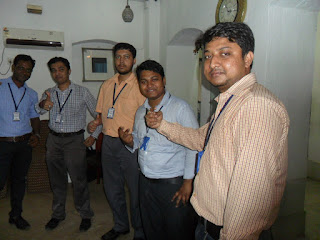The Best HR Career Paths – for Freshers/Experience Who want to Make Career in HR
With a one-person HR team,
administrative duties often take priority over strategic initiatives, like
employee experience, workforce planning, or company culture.
However, as companies grow, so too do opportunities for HR professionals to take on new responsibilities and contribute in meaningful ways. Specialized HR careers ensure that every stage of the employee lifecycle has a clear owner and a process—so nothing gets left in a blind spot.
Whatever HR job title you land on, you have a wide range of career paths to choose from. Where do you start? We’ve outlined five tracks to help you find your ideal future in HR.
1. The HR Generalist
For the
jack-of-all-trades and multi-tasker extraordinaire, HR Generalist roles may be
the fit for you. The HR Generalist has a hand in all pieces of the HR machine,
including benefits, onboarding, performance management, talent acquisition, and compliance. The HR Generalist plays
a vital role in ensuring that everything runs without a hitch. While this can
be a lot for one person, it does give you a 360 degree view of the company’s
ecosystem (and can help you identify where else you might want to specialize
down the line.)
Qualifications
- Minimum
1-3 years of related HR experience
- Bachelor’s
degree or higher
- Exceptional organization and
communication skills
Responsibilities
- Own
execution of compensation including payroll and benefits
- Manage
the hiring process from recruiting to onboarding
- Attend
to employee relations, concerns, and culture
- Administer
performance reporting
- Create
high level goals and processes
2. The Talent Acquisition Specialist
As companies grow, talent
acquisition becomes more important than ever. With a focus on finding and
developing top talent, the Talent Acquisition Specialist is responsible for
building and shaping an organization’s structure. In this role, you understand
the importance of bringing in new hires that are both well equipped to do the
job and a strong culture fit. This role manages all efforts to recruit,
interview, and onboard top talent. Over time, talent acquisition can be broken
into even more specific roles, such as department-specific recruiters or on
boarding.
Qualifications
- 1-2
years of relevant experience
- Bachelor’s
degree
- Excellent communication and critical
evaluation skills
Responsibilities
- Work
closely with hiring manager to define the ideal candidate
- Promote
job openings and scout external talent
- Screen
and interview candidates
- Drive
the hiring process, including verifications and offers
- Provide orientation and onboarding
training to new employees
3. The HR Data Analyst
Data is becoming increasingly important to every department
within an organization, and HR is no exception. The HR Data Analyst tracks
metrics throughout the talent lifecycle to inform better processes. This role
is still relatively new in the field, so it requires a lot of creativity and
strategic data-driven thinking in order to develop useful and actionable metrics.
Qualifications
- 1-5
years relevant experience in data analysis or statistics
- Bachelor’s
degree or higher
- A comprehensive understanding of
the HR space
Responsibilities
- Establish
core metrics to measure success of talent lifecycle
- Track
metrics and identify fluctuations over time
- Create
surveys to obtain qualitative insights
- Work with the rest of the team to
implement metric-driven changes
4. The Payroll and Benefits Administrator
Employees’ primary
communication with their HR team typically centers around compensation and
benefits. Whether it’s a missed paycheck, open enrollment, or tax season,
employees rely on the Payroll and Benefits Administrator to answer their
questions and make sure everything is in order. The Payroll and Benefits
Administrator maintains processes to ensure that employees are properly
compensated.
Qualifications
- 1-5
years of relevant experience in benefits and payroll
- Bachelor’s
degree or higher
- Able to communicate confusing
concepts to employees
Responsibilities
- Establish
processes for distribution and management of payroll and benefits
- Run
payroll for employees
- Research
and implement benefits plans
- Communicate
insurance plans to employees
- Address any employee payroll
concerns



Comments
Post a Comment